David Chalmers Quotes & Sayings
21 most famous David Chalmers quotes and sayings (philosopher). These are the first 10 quotes we have.

“Even when I was studying mathematics, physics, and computer science, it always seemed that the problem of consciousness was about the most interesting problem out there for science to come to grips with.”
“Now I have to say I'm a complete atheist, I have no religious views myself and no spiritual views, except very watered down humanistic spiritual views, and consciousness is just a fact of life, it's a natural fact of life.”
“Actually, I think my view is compatible with much of the work going on now in neuroscience and psychology, where people are studying the relationship of consciousness to neural and cognitive processes without really trying to reduce it to those processes.”
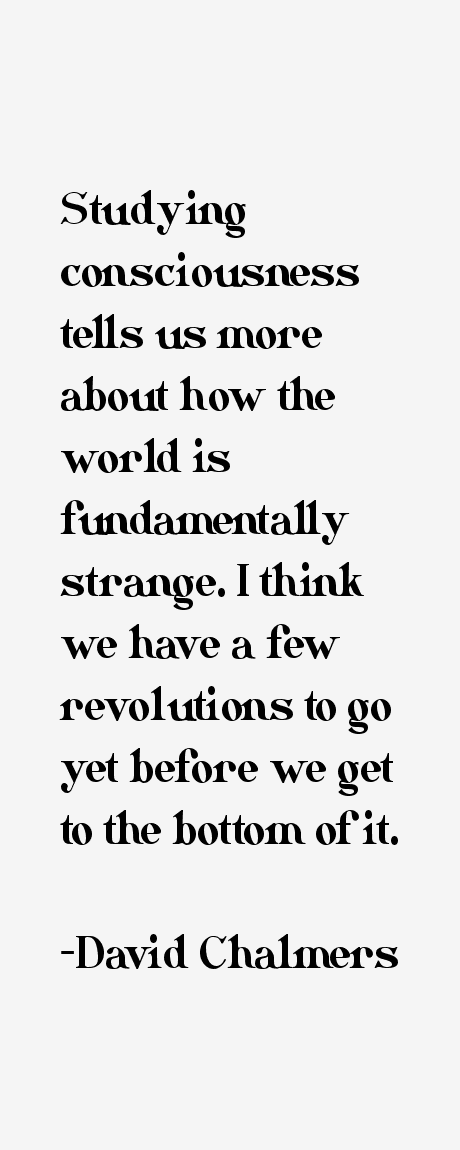
“Studying consciousness tells us more about how the world is fundamentally strange. I think we have a few revolutions to go yet before we get to the bottom of it.”
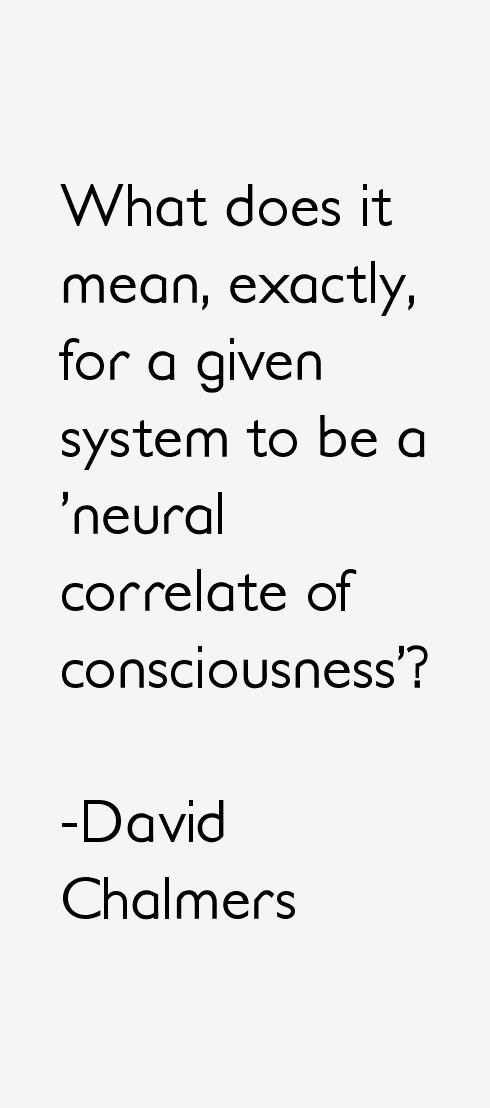
“What does it mean, exactly, for a given system to be a 'neural correlate of consciousness'?”
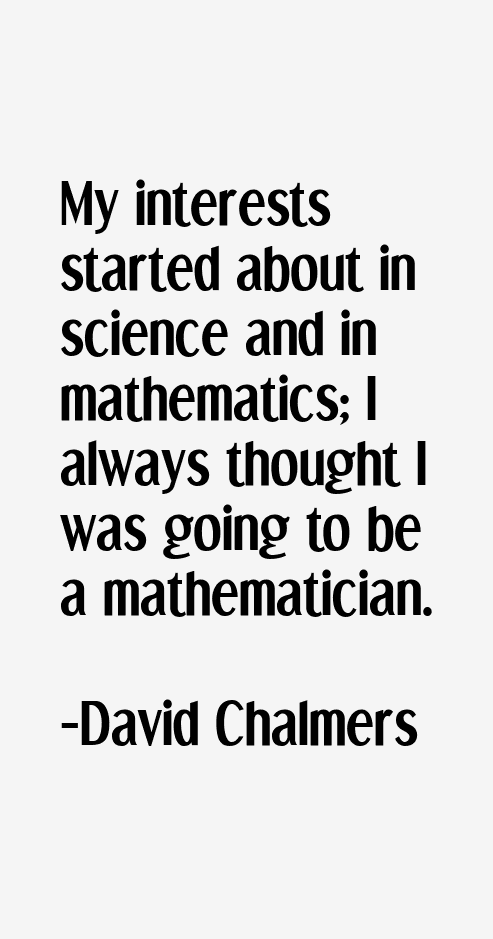
“My interests started about in science and in mathematics; I always thought I was going to be a mathematician.”
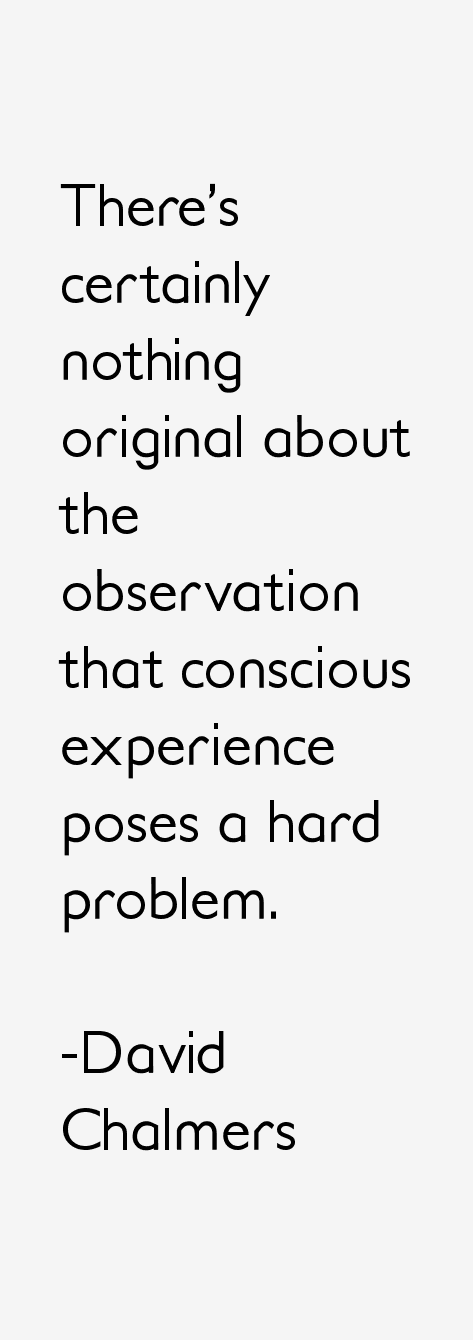
“There's certainly nothing original about the observation that conscious experience poses a hard problem.”
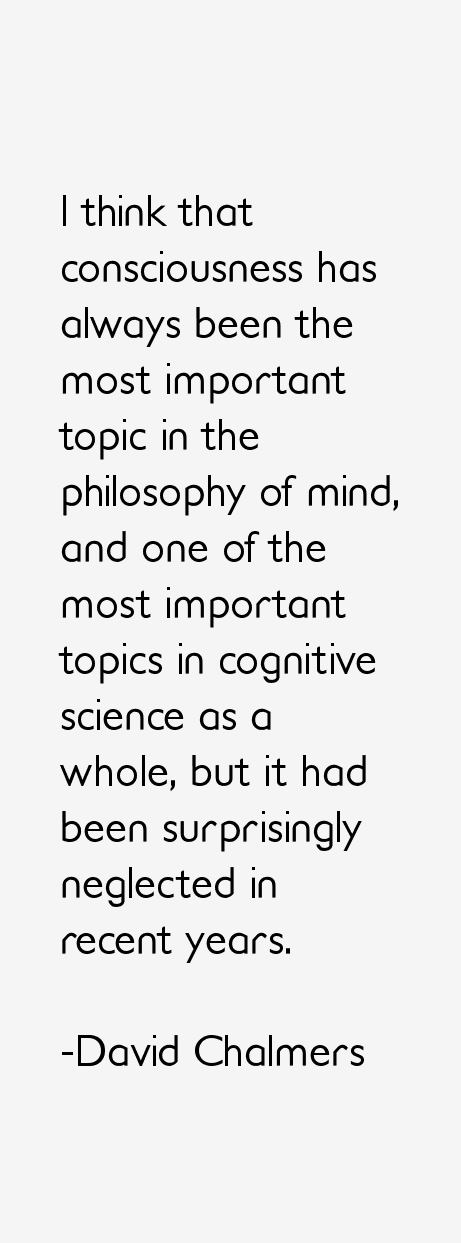
“I think that consciousness has always been the most important topic in the philosophy of mind, and one of the most important topics in cognitive science as a whole, but it had been surprisingly neglected in recent years.”

“Within psychology and neuroscience, some new and rigorous experimental paradigms for studying consciousness have helped it begin to overcome the stigma that has been attached to the topic for most of this century.”
“Things are still in early stages, but one can imagine that as we build up and systematize our theories of these associations, and try to boil them down to their core, the result might point us toward the sort of fundamental principles I advocate.”
David Chalmers Quotes Rating
No Ratings Yet
Leave A Comment
























